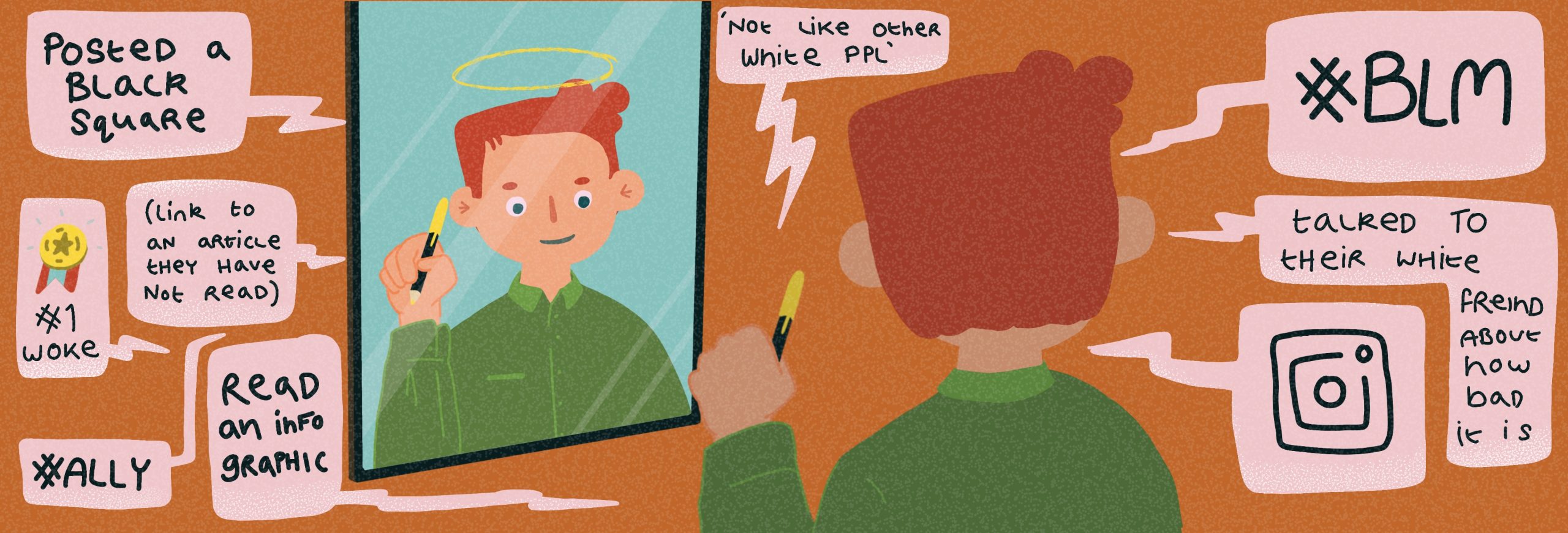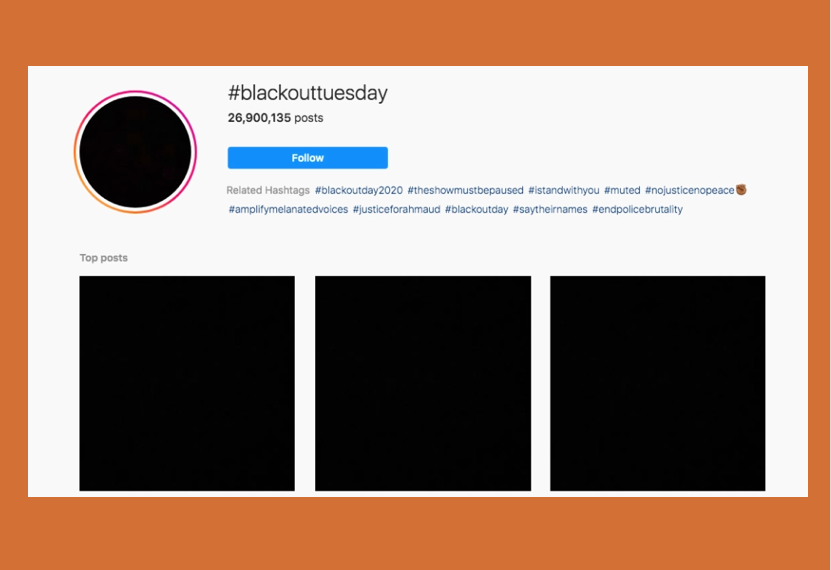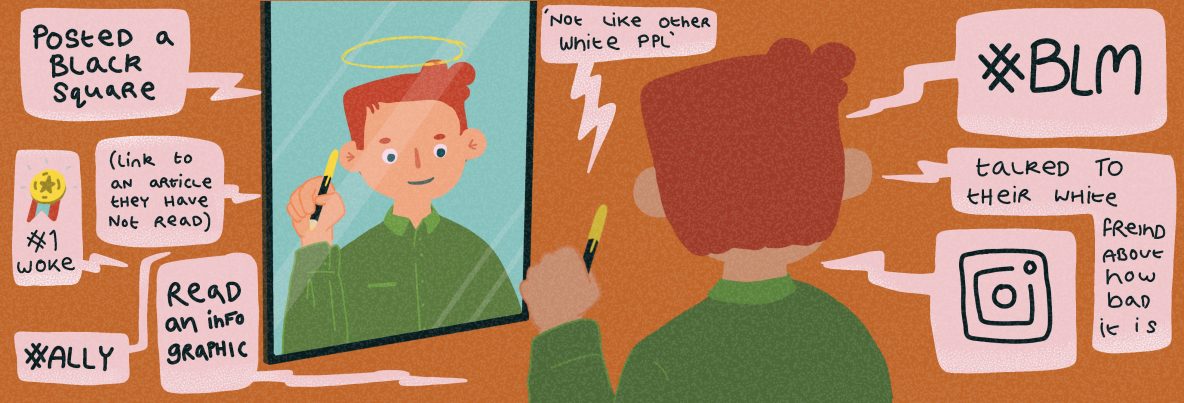Who is your performative wokeness for?
Why virtue signalling is problematic.
By Nivetha Tilakkumar / 20 October 2020

Illustration by Finn Weaver
We live in a time when what we post on social media matters.
George Floyd’s death on 25 May 2020 sparked a new upsurgence in the Black Lives Matter movement. More and more people were becoming aware of the atrocities of police brutality and systemic racism. Social media proved to be a useful tool to spread awareness of Black Lives Matter but, as always, it became evident that many people were engaging in performative wokeness.
Performative wokeness, or virtue signalling, is a way people can appear to be ‘woke’ or politically correct without actually engaging in discourse around the subject. This ‘wokeness’ is dangerous because it provides a façade behind which we can do the bare minimum whilst appearing to do more. It suggests an artificiality to our compassion and humanitarianism, and most of all suggests a temporality. This type of wokeness is dripping in privilege: the person in question is able to jump on and off the ‘woke’ bandwagon when it suits their image best. Meanwhile, those impacted by the social injustice that the performative wokeness claims to combat have no choice but to suffer. To put it plainly, to perform one’s ‘wokeness’ is a choice and that choice to engage in these topics is a privilege.
The following days after George Floyd’s murder, my Instagram feed was full of posts supporting Black Lives Matter, posts calling for the defunding of police, posts calling for racial justice and highlighting racial inequalities in our society. At first glimpse, it looked like hope: a hope that maybe, just maybe, people were beginning to get it. It looked like things were going to change and racial discourses would continue. However, I remember the outcry on social media when it was Trayvon Martin, Tamir Rice, Eric Garner, Philando Castille, Breonna Taylor; I remember the swift silence after a few weeks. In fact, as I was researching for this article, I typed into Google ‘performative wokeness’ and articles from 2014 about the dangers of the term popped up. People have been performing their activism online for years, so why do they continue to do so? I watched on social media as the whole world jumped on the Black Lives Matter bandwagon for the month of June and then went back to posting pictures of summer fun.

To make it worse, I saw people outraged on social media shouting ‘Black Lives Matter’ but not one word about the transgender black people who were victims of transphobic violence.
Black transwomen face more discrimination than their white counterparts due to prejudices directed at their gender and their skin colour. This year alone, over 30 transgender women of colour have been killed and I hardly saw anything on social media about it. People continued to perform their activism but limited it as if we could not support black lives and transgender lives together. The thing is, we cannot limit our activism. Activism does not mean we have to support one and not the other. If we are crying out ‘Black Lives Matter’, we must acknowledge that All Black Lives Matter and we must do everything we can to dismantle racist and queerphobic systemic structures in society.
It is now Black History Month and I have seen a resurgence in online activism. I have seen white people on my social media post more about equality for black people. I have seen Channel 4 advertising their ‘Black Pride’ boxsets. I have seen publications posting more articles about Black History. But when November comes around, I know all this will end. And if you’re reading this thinking that you don’t perform your ‘wokeness’ you should think again, because we can all unlearn and learn again. Activism isn’t just a few weeks of keeping up a righteous Instagram feed – that is just laziness and self-obsession. Genuine activism is a sustained process. White people have the privilege to choose when to support these causes but for black people and for many people of colour, we don’t have that choice. Police brutality, transphobic violence and racism are systemically engrained in our society and if we choose to act to dismantle it, we must remain committed.

To those wondering how to stay committed, it is so important to engage in conversations about racial inequality, no matter how uncomfortable they are. Talk about it with your friends, your family, your colleagues, even. It is not the job of your black friends to explain things to you or for you. You should have these conversations of your own accord. There are so many resources, books, shows and films which are so useful so take the time to unlearn systemic racism and to relearn anti-racist behaviour. Protest, donate, attend a webinar, do whatever you can to be actively anti-racist because posting a story to show your ‘support’ does nothing. Activism is not a performance to make oneself look like a better person: it is a must for equality.
You can find a link to The Release's list of educational resources here.
Art by
Words by
Share this article

